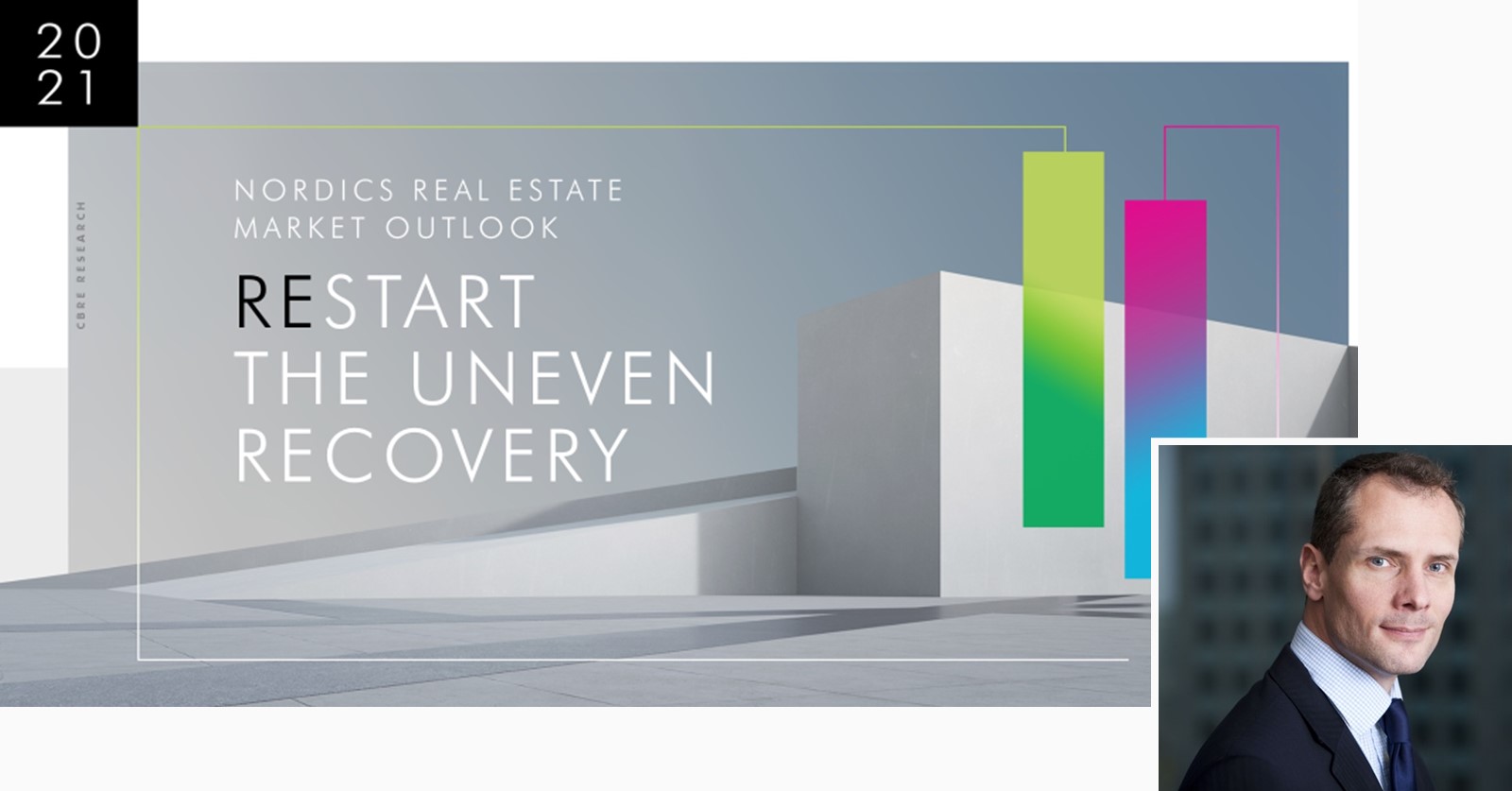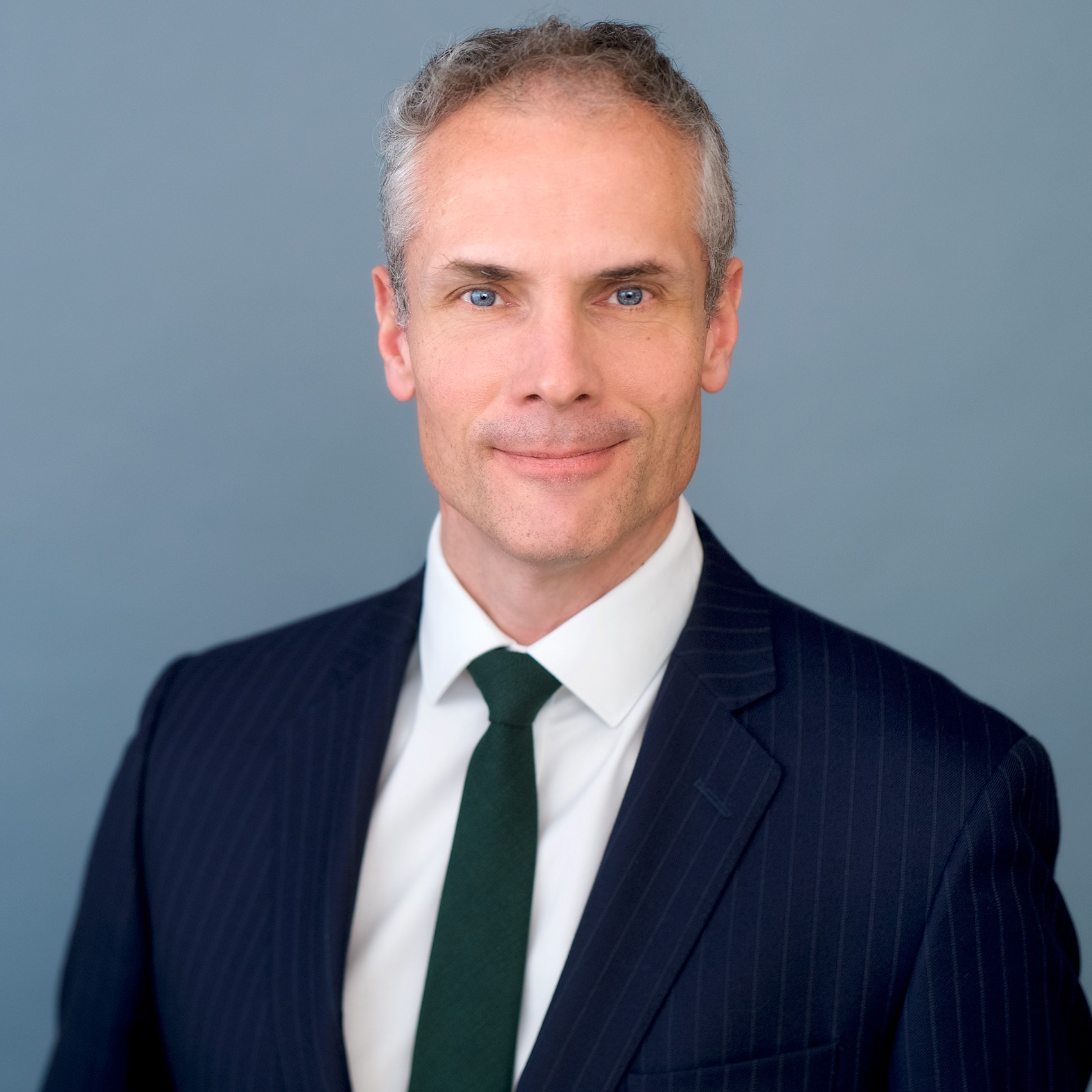Tuesday 9 February CBRE hosted our first Nordics Real Estate Outlook event.
CBRE EMEA and global leaders Marco Hekman, Jos Tromp, Henry Chin, Richard Barkham, Julie Whelan, Spencer Levy & Jen Siebrits gave an interesting opening presentation about the EMEA Real Estate Market Outlook.
The EMEA Market Outlook presentation summed things up in the key takeaways: CBRE is cautiously optimistic that the European market will return to modest growth this year. Multifamily and logistics will continue to see positive tailwinds. Offices will make a comeback in 2021 as the economies are slowly reopened through the vaccinations and office workforce is eager to get back to the workplace to collaborate after a period of work from home. Finally, the year 2021 is going to be the year in which CBRE will take its responsibility in working with all of our clients to change the real estate industry and contribute to the carbon reduction goals and sustainability objectives.
Amanda Welander had her key takeaways on the most important points you need to know about the Nordic economies and real estate markets in 2021.
After the 2-4% decrease in the Nordic countries’ GDP in 2020, CBRE is expecting the economies to rebound in 2021 on the back of vaccine optimism and the gradual reopening of the economies. The first half of 2021 will be slowed down by different lockdowns and travel restrictions in the Nordics, but the recovery will be seen in the second half as the governments are determined to vaccine large masses of the population by the end of the first half. Finland and Denmark are estimated to grow 2%, Norway 2.4% and Sweden will have the strongest recovery with a GDP growth of 2.9% in 2021.
There will be higher level of international investors in the Nordics looking to deploy more capital into real estate in the continuing low rate environment. The investors will be aligned more towards defensive asset types and locations.
Hybrid working is expected to increase in the office sector and occupiers will go from cautious speculation in the first half of 2021 to creating new strategies around the increased flexibility and hybrid way of working in the second half of the year.
The recovery in leasing volumes will come back as the economies start to recover. In retail well-functioning retail parks, often grocery- or discount retail- anchored, will continue to receive interest from investors.
Hotel assets that are more exposed to domestic travels are expected to recover first. It will take time for the sector to recover. CBRE expects a spike in completions during 2021 for logistics in the Nordics. As most completions are made pre-let in the Nordics, there is no drastic increase in vacancy rates expected.
Logistics will continue to see strong demand from a range of investors that look to allocate more investments into the sector benefiting from the growth in e-commerce and the rise in parcel deliveries across the Nordics.
Many investors are attracted by the favourable return profile from multifamily that is generally less susceptible to cyclical movements over the medium to long term.
The residential sector was the largest investment sector in 2020 in the Nordics and will see more growth in 2021 on the back of rapidly growing city populations and urbanisation in the Nordic countries.
Elin Austevoll, Head of Corporate Real Estate from the energy company Equinor, was suggesting in her keynote presentation with CBRE’s Einar Schiefloe that no single industry is immune to climate change. She suggested that Equinor’s transformation from traditional energy company to broad energy company with focus on renewables is well underway. Equinor has input a clear strategy committed to long-term value creation through a low carbon future in the company’s commercial real estate. Equinor has globally over 100 properties with 1.2 million square metres in its portfolio and is focused on the improvement possibilities in operating real estate more sustainably.
Equinor aims at having safe and sustainable places to work that create productivity and engagement with increased flexibility in leases (cost savings), right-sized real estate portfolio (CO2 reductions) and more flexible workplace solutions that are less dependant on time and place. The company will reduce floor space in its real estate portfolio and have more flexibility in its workplace strategy. Equinor is targeting to attract more talent to its workplaces and to have the means to monitor what happens in the buildings in its portfolio. Talent attracting and data driven real estate will be the keys to the future for Equinor.
Nordics Real Estate Market Outlook 2021 reports
Download the reports for Denmark, Finland, Norway and Sweden

